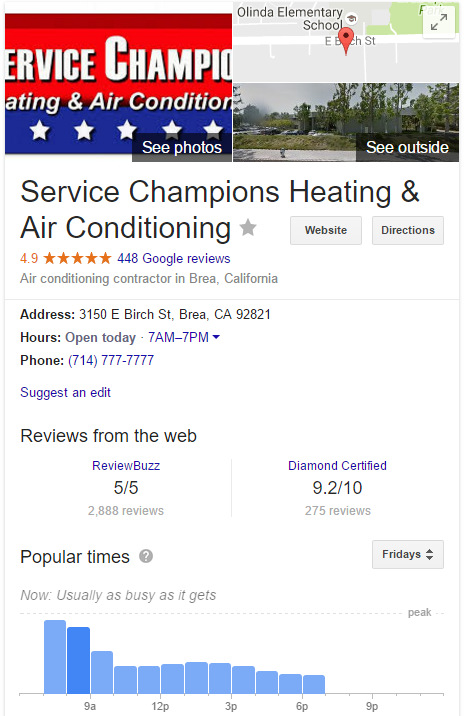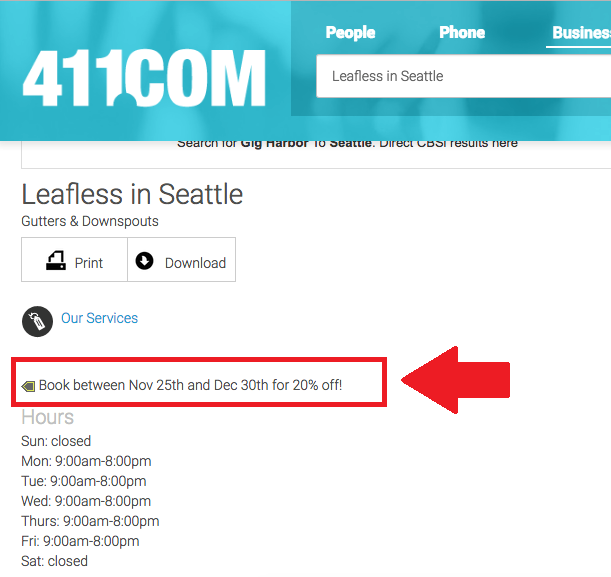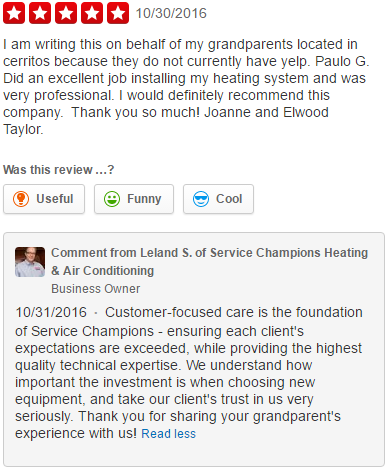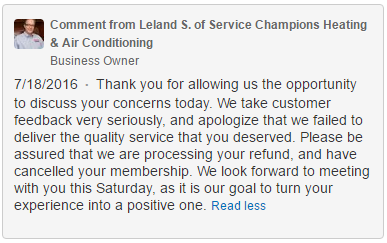Posted by Rich Harshaw on February 28, 2017.

If I asked the average contractor his goal for his business, he’d likely come at me with an annual dollar figure.
$2 million in sales. $10 million in sales. And so on.
While these goals are admirable, they’re also vague and hard to wrap your head around. And since they’re hard to conceptualize, they lack motivation power.
That’s why we encourage contractors to determine their MOST IMPORTANT NUMBER.
Here’s what I mean…
Rather than setting a vague annual sales goal, determine the percentage of sales each product you sell represents.
For example, let’s say your breakdown is 60% windows, 25% siding, 10% roofing, and 5% miscellaneous.
Your “bread and butter” product is obviously windows, so we’ll use that to figure out your numbers (it’s much easier to focus on one thing than on many).
Determine your typical sales price and margin on your average window project, as well as how many window projects you sell every month.
We’ll say your answers are as follows:
- $8,000 sale price
- $4,000 margin
- 8 jobs per month
This means you typically sell 8 window projects for a total of $64,000 and a margin of $32,000. Make this your baseline.
Once you figure out these numbers, ask yourself this:
“To get my business to where it fulfills all my financial goals, how many window projects per month would I need to sell?”
Caveat: I’m not talking about an answer like, “$20 million, so I can party on a yacht like Leonardo DiCaprio.”
I’m talking more along the lines of how much you need for the lifestyle you want and give yourself a comfortable retirement.
Take your time and figure out the answer. And then write it down.
(For many folks, the answer is a personal income between $300,000 and $1 million per year.)
Once you’ve written down your number and calculated your sales, your brain is able to focus on the necessary work to achieve your goal. It becomes a simple measuring stick—in a given month, simply compare your results vs. your most important number.
Now let’s say you need 25 jobs per month to reach your most important number. That would work out to $200,000 in sales and $100,000 in margin.
If you achieved that many sales, how much would you spend on marketing to get that number consistently?
Most contractors spend up to 15 percent of the SALE price to get a sale, so that would be an extra $20,400 in marketing. This is in addition to the $9,600 you already spent to get the original $64,000 in sales, so that works out to a total marketing budget of $30,000.

You need to spend money to make money. Plain and simple.
I’m not saying an extra $20,400 is available in cash flow to spend on marketing every month.
And I’m not saying that even if it were that you’d instantly get to 25 sales a month.
BUT…
You now have a formula for succeeding in your business: Spend $30,000 a month on marketing to get to 25 window sales a month.
This much is certain:
NOT spending incremental dollars on marketing is NOT going to get you where you want to go. And this is the major obstacle holding back nearly every single remodeling company I ever talk to.
Instead of thinking in terms of specific budgets required to hit specific numbers of specific kinds of sales, they have big vague numbers that they have no clue how to get to.
Which leads to the final, all-important question: If you DID spend $30,000 a month on marketing JUST FOR WINDOWS, what would you spend it on to get the 25 sales?
I’ll answer that question in my next post. I’ll also show you how easy it is to get the money—believe it or not, it’s probably right under your nose!
But for now, I simply want you to figure out: WHAT IS YOUR MOST IMPORTANT NUMBER?
Knowing this simple number will liberate your brain; you’ll be able to see that your number is not nearly as intimidating as you may have thought.
P.S. Today, we determined your Most Important Number. Tomorrow, I’ll go into the nitty-gritty on how to acquire the marketing budget necessary to get to that magical number. Stay tuned.
Can’t wait until tomorrow? Check out this post that I wrote last year targeted toward smaller and newer remodeling contractors. Caution: It’s stern advice.
Posted by Rich Harshaw on February 7, 2017.

A few years ago, I met a man named Kip Lee from Savannah, GA who owned a sunroom and window company.
Kip’s business was getting along just fine. In fact, he had one of the country’s top sunroom companies, despite being in one of the smallest markets.
Kip spent hundreds of thousands of dollars on newspaper advertising, and was just starting to dabble in TV commercials.
His first few commercials featured a spokesman who talked about the qualities of the company’s products. The actor had charisma, great stage presence, and came across as friendly and knowledgeable.
The commercials worked OK, but were not generating the results required to take Kip’s business to the next level.
I started working with Kip around this time. As I was reviewing his existing marketing materials, one item caught my eye: Kip’s infomercial.
Kip made an infomercial basically as an afterthought because the production company cut him a good deal on it. Kip only ran the infomercial on early Saturday and Sunday mornings, so it didn’t produce many leads and sales.
In the first few seconds of watching it, though, I knew this forgotten piece of advertising—relegated to a time only insomniacs and new moms were awake—was THE key to increasing Kip’s business.
Why?
Because Kip was a natural-born star.
One of the biggest reasons Kip’s company is so successful is because he has one of the most friendly, authentic, teddy-bearish personalities on the planet. When he sat down in someone’s home for a sales presentation, it was a done deal—prospects just knew they could trust Kip and that he wouldn’t BS them.
Kip’s demeanor came across like gangbusters in his infomercial. So I told Kip right then and there that he needed to be the star in his advertising.
And, practically overnight, a star he became.
First, we put Kip in a set of TV commercials. Then we started putting his picture in his print ads and his jovial voice on the radio.
Not long after, folks were recognizing him at the grocery store and in restaurants.
He heard, “Hey, you’re the guy from TV” on the daily. Random strangers high-fived him. He even signed some autographs.
Yeah, a sunroom guy… signing autographs.
But becoming the face of his franchise did more than make Kip the George Clooney of Savannah, Georgia.
As people saw Kip on TV and became familiar with his “We Take The Risk Out Of Home Improvement” pitch, they began to truly believe him.
Kip’s cost per lead started shrinking as his stardom rose. It wasn’t overnight, but that’s the name of the game when you’re using brand-building advertising methods like TV.
After a while, Kip started getting plenty of leads contacting him even when his ads were NOT running.
Here’s the million-dollar question…
Should YOU star in your own ads?
Like everything else, there are pros and cons to being the face of your franchise. So consider a few things before taking the plunge.
Can You Act?

Everybody has seen that business owner “starring” in his own commercial who looks like a deer in headlights and reading straight from a cue card. When you watch them, you feel a mixture of pity, secondhand embarrassment, and a tinge of guilt at your urge to laugh.
To pull off effective TV commercials, you have to have personality, charm, polish, and enough acting talent NOT to sound stilted. And trust me—do NOT ask for a family member’s evaluation on this.
Do You Care About Fame?

Do you want to be recognized when you’re buying toilet paper at Costco? Put yourself on TV for long enough, and it WILL happen.
You’ll start getting stares in parking lots, whispers at dinner tables, and points from children. I’m not saying you’ll get the paparazzi chasing you around town or TMZ writing some trashy story about you… but you will get noticed and called out on the regular.
And remember: not everybody is going to like you. Some will think you’re cheesy or dopey or annoying. Are you ready to handle that?
Do You Want To Be Your Company’s Brand?

When you’re the star of your commercials, YOU become your brand. People may catch your company’s name, but they’ll likely remember yours more.
This can be a good thing, especially if you’re a likable person. But if you’re planning to sell your business at some point, you could be hurting the value of your company by packaging its image so tightly with your personal image.
Bottom Line…
Starring in your own commercials can boost business big time. Plus, it can be a lot of fun. I recommend it for business owners with the right personality and who don’t plan to sell their company any time in the near future.
Just know what you’re getting into before the camera starts rolling.
P.S. If you need helping creating your television ads and buying media, we can help. Visit our Ad Writing and Media Buying pages for the nitty gritty.
Save
Posted by Rich Harshaw on December 20, 2016.
The Holidays are traditionally when remodeling business slows down to nearly a halt. What if I told you that it doesn’t have to be that way? That there’s a completely legitimate and easy way to ensure that you’re boosting remodeling business leads during the holiday season?
First you’d tell me I was full of it. That’s cool. I get it.
Here’s where I prove it to you.
Something really convenient about searching for a company on Google is the business listing function:

You get all the info you need—even the business’s busiest hours—in one little box.
The only thing about this feature that annoys me (and everybody else) is when that message pops up next to their hours of operations saying, “The holiday may affect business hours.”
You know, this one:

Believe it or not, this little message does discourage some people from contacting you. When people see it, they think either…
- “Ugh, I don’t have time to whip out my phone and actually call the dang place to see if they’re open.” (person goes back to using said phone to play Candy Crush)
- “Meh, I’ll wait until after the holiday.” (person completely forgets about you three seconds later and never contacts you)
Here’s the thing, though: This prospect-deterring message is not Google’s fault.
Google can’t predict if you’re vacationing in Sandals Jamaica on Memorial Day weekend or closing shop early on New Year’s Eve to party like it’s 1999. So they hedge their bets by telling their users you may or may not be open on any given holiday.
That’s why it’s a good idea to update your hours on Google, your website, and business listing sites before a major holiday.
When you inform Google of your holiday hours, they update your business listing with this more prospect-inviting message:

BOOM—the holiday hours are right there, so prospects don’t have to do any investigating to find out if you’re open. (And the easier you make things on a prospect, the better.)
After you update your holiday hours with Google, make sure to do the same on business listing websites you use. Google uses business listing sites as location signals. If your info is the same across all of the sites, Google gives your local SEO a healthy lift.
Lastly, when updating your holiday hours on business listing sites, it’s also a great idea to communicate any holiday specials you have going on.
Example:

People landing on this page for Leafless in Seattle, a Master Shield gutter installation company, are already interested in the company’s services. That special offer gives prospects even more reason to visit the company’s website (everyone loves a good holiday sale… Black Friday, anyone?).
We recently updated our SEO clients’ holiday hours and specials across 70+ business listing websites. Because at MYM, we’re all about generating leads for our clients and boosting their remodeling leads 24/7, 365 days a year. No exceptions.
If you’re the same, advertise those holiday hours and specials online ASAP. It’s insanely easy, and doing so can provide a nice little pick-me-up in business during the holiday dog days.
P.S. If you want to find out more about our SEO services, you’ll want to give this link here a click. And if you’d like to know how well your current SEO efforts are working (or not working), take advantage of our free Lead Generation Audit. We’ll expose all the hidden cracks in your SEO plan that are leaking precious cash.
Save
Posted by Rich Harshaw on December 16, 2016.

Imagine you just completed a project for a client.
They compliment you on your work and tell you how great you are.
Now, what’s your reaction?
Probably to acknowledge the compliment and say “thank you,” right?
It would be rude not to.
So why don’t you respond to your clients who leave you good reviews on the internet?
Not only is it polite, but it’s also a great way to squeeze some extra mileage out of your online reviews.
Basically every major review website—Yelp, Facebook, Google Reviews, etc.—gives you the ability to respond to your customers’ reviews.
Regrettably, most companies use this feature only to respond to bad reviews.
Don’t get me wrong.
Responding to negative reviews is very important (more on that in a second). But responding to positive reviews also provides massive benefits.
For example:
- It shows you have a real person at your company keeping up with the feedback you’re getting (which shows you care).
- Inserting a keyword (service you provide + the city) into your response can help your SEO.
- Your responses are indexed by Google, thus helping you land higher in search results.
My good buddies at Service Champions respond to practically all of their positive reviews. In fact, the owner responds himself.
Take a look…



As you can see, your response doesn’t have to be long or involved. An acknowledgement of the review along with a “thank you” works well.
If you’re swamped, you could even have someone at your company write your responses for you and quickly review them before your employee posts them.
The process is oh-so easy… and oh-so beneficial.
But what about responding to negative reviews? Does that help?
You bet your backside it does.
Studies show that 95% of unsatisfied customers will return to a business that resolves the issue quickly and efficiently.
NINETY-FIVE PERCENT!
Let me use Service Champions as an example again.
As I’ve told you before, they convert practically all of their one-star reviews into five-star reviews on Yelp by jumping on the problem AS SOON AS the review is posted.
They usually start this process by calling the customer the same or next day that customer posts the review. The company also responds to the review on Yelp itself.
(It’s optimal to both call and respond to the review, as you want to reach the customer as quickly as you can.)
Plus, responding to a negative review directly on the website mitigates some of the damage that review can cause. It shows prospects you go above and beyond with your customer service by being willing to fix issues and make people happy.
Here’s an example. It’s a response to a customer who left a three-star review because their credit card was accidentally charged a month after they canceled their membership with the company:
People will look at Service Champions’ response and say, “Okay, they goofed, owned up to it, and want to make it right. How refreshing. They seem like a great company.”
Bottom Line: Whether you’re responding to negative or positive reviews, a few words go a LONG way.
P.S. In my next post I’ll show you a simple little picture someone took with a smartphone that sold for $40,000… and show you exactly how to do the same.





















